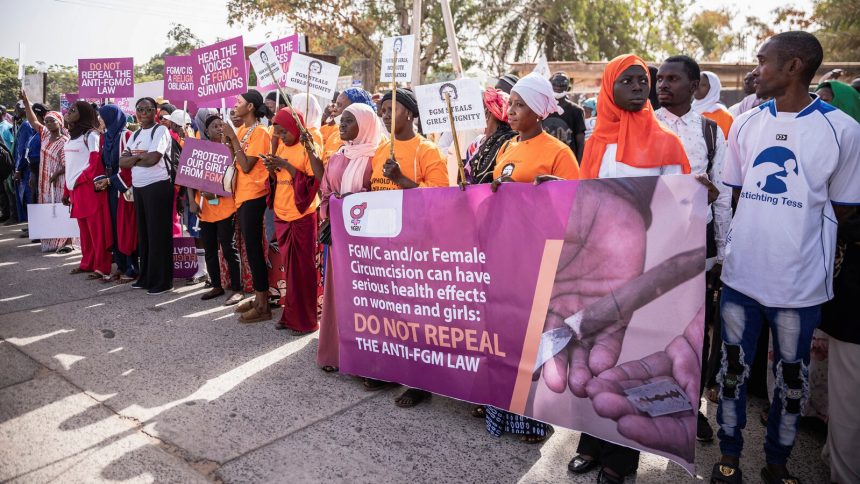The Gambia has taken a significant step towards lifting a ban on female circumcision, potentially becoming the first country globally to roll back legal protections against the practice for millions of women and girls.
In a parliamentary vote on Monday, politicians in the West African nation voted 42 to four in favour of advancing the controversial bill. This legislation aims to repeal a landmark 2015 ban on female genital mutilation (FGM), which previously carried penalties of up to three years in prison.
Legislator behind the bill, Almameh Gibba, argued that the ban infringed upon citizens’ rights to “practice their culture and religion” in the predominantly Muslim country. “The bill seeks to uphold religious loyalty and safeguard cultural norms and values,” Gibba stated.
However, activists and rights organizations have strongly opposed the proposed legislation, asserting that it undermines years of progress and poses a threat to the country’s human rights reputation.
Founder of Safe Hands for Girls, Jaha Marie Dukureh, a non-governmental organization (NGO) dedicated to ending female genital mutilation, described the practice as “child abuse” in an interview with Al Jazeera. Dukureh, who herself underwent FGM and tragically lost her sister to complications from the procedure, emphasized the deep-rooted suffering and pain experienced by women subjected to this harmful practice.
“The people who applaud FGM in this country, a lot of them are men. These are men who don’t have the same lived experiences that we do, and women who have been through this practice continue to tell them every single day what their suffering is, what their pain is,” she stated passionately.
The debate surrounding the repeal of the FGM ban, which was implemented by former Gambian President Yahya Jammeh during his 22-year authoritarian rule before his ousting in 2016, has deeply divided the nation.
Tensions flared in August when three women were fined for performing FGM on eight infant girls, marking the first convictions under the law.
Moving forward, the bill will undergo further examination by a parliamentary committee before a third reading, a process expected to span three months. During this time, the committee holds the authority to propose amendments to the legislation.




